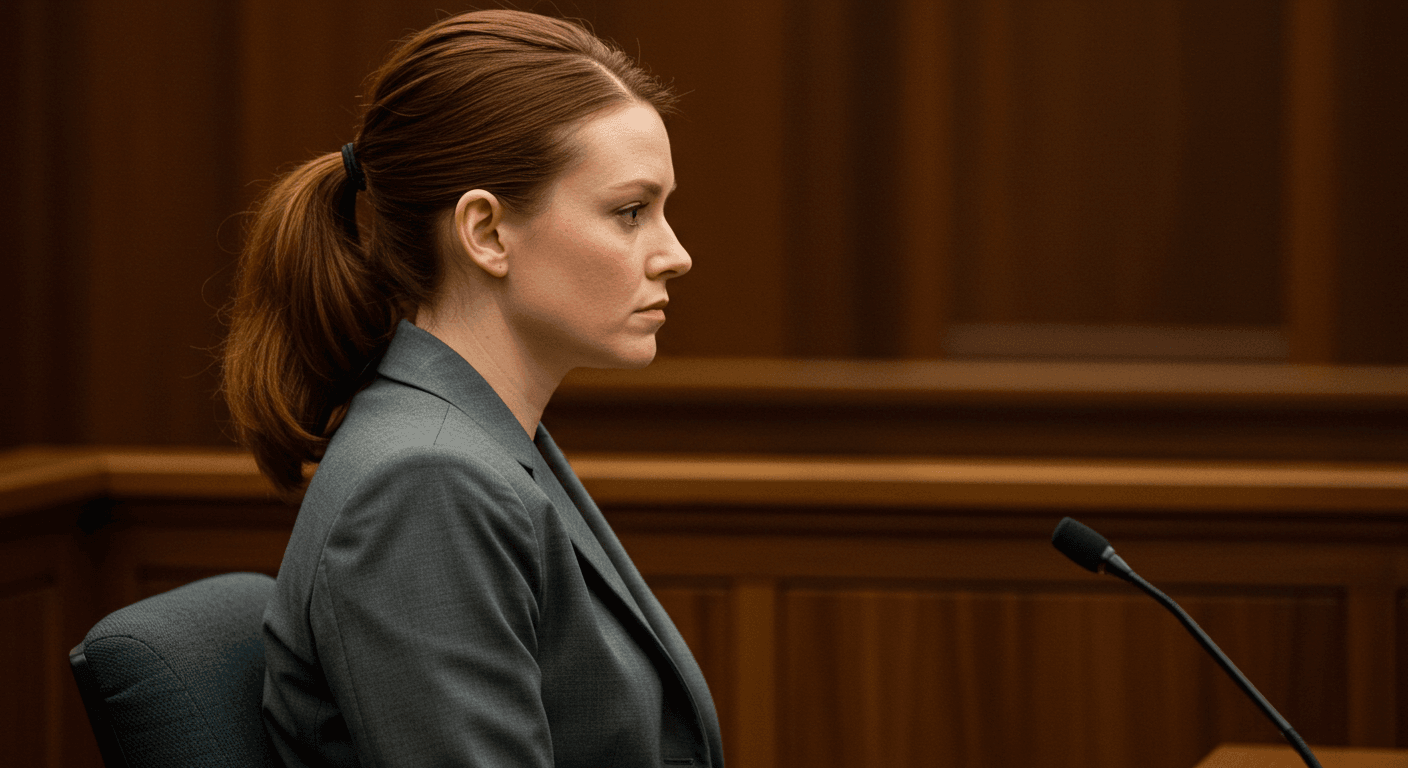So, you’ve had an unfortunate run-in with a rogue lawnmower or perhaps a less-than-graceful slip on someone’s spilled soda. Now you’re thinking about getting compensated for your troubles.
But how do you ensure that settlement check has enough zeros to make your accountant faint? Well, grab your favorite snack and settle in because I’m here to share some strategies that could help maximize your settlement amount. Spoiler alert: it involves more than just asking nicely!

Top Takeaways and Key Concepts
Calculate your claim value by totaling medical costs, lost income, and pain and suffering.
Hire an experienced personal injury attorney to negotiate effectively and protect your rights.
Document all evidence including injuries, bills, conversations, and expert reports to strengthen your claim.
Reject low first offers and negotiate confidently instead of rushing into a quick settlement.
Use expert testimony to prove long-term impact and justify higher compensation.
Summary of This Article
This article explains how to maximize a personal injury settlement by being strategic and prepared. It emphasizes starting with a clear understanding of your claim’s worth by adding up medical expenses, lost earnings, and emotional damages. Hiring the right attorney is crucial for navigating negotiations and avoiding costly mistakes. The article stresses the importance of thorough documentation to support your claim and warns against accepting the insurance company’s first offer. It also highlights using expert witnesses to increase credibility and value. Ultimately, thoughtful negotiation, patience, and preparation are key to securing a fair settlement.
Know Your Worth

First things first, you need to know what your case is worth. This isn’t just about slapping a number on it like you’re pricing used furniture at a garage sale. You should consider all the factors involved—medical bills, lost wages, pain and suffering, and even those emotional damages from watching sad puppy videos while recovering.
To figure this out, gather all relevant documentation. This means receipts from doctor visits (which are often more expensive than buying a small car), pay stubs showing lost income, and any other evidence that illustrates the impact of the incident on your life.
Honestly, if you can present a well-organized stack of papers instead of a crumpled napkin with scribbles, you’ll already be ahead in negotiations.
Hire the Right Attorney
Now let’s talk about lawyers—those folks who wear suits and seem to have an affinity for big words like “litigation.” Choosing the right attorney can be as crucial as finding that last slice of pizza at a party. You want someone experienced in personal injury cases who knows how to navigate the legal labyrinth effectively.
When meeting potential lawyers, ask them questions! How many similar cases have they handled? What’s their success rate? And most importantly—do they charge by the hour or take a percentage of your winnings? Because let’s face it; nobody wants to end up with less money than they started with after paying hefty legal fees.
Document Everything
By the way, I think we all underestimate the power of good documentation. Keeping track of everything related to your case is essential—from medical appointments to conversations with insurance adjusters.
If you’ve ever tried remembering what happened during last weekend’s family reunion without notes, you know how tricky memory can be!
Take photos of injuries or property damage; write down every conversation regarding your claim; keep copies of bills and reports—it’s like building an epic scrapbook but without glitter (unless that helps). All this information will strengthen your position when negotiating for a higher settlement.
Don’t Rush into Settling
Here’s something interesting: many people feel pressured to accept the first offer they get from an insurance company. It’s tempting! They dangle that check in front of you like it’s candy after Halloween night—but hold up!
That initial offer is usually lower than what they’re willing to pay because they hope you’ll bite quickly before realizing what you’re worth.
Take your time! Review offers carefully and discuss them with your attorney before making any decisions. Sometimes waiting just a little longer can lead to significantly better outcomes—kind of like letting cookies cool before diving in (although I understand if that’s hard!).
Leverage Expert Opinions
Speaking of experts—let’s see how valuable their opinions can be! Having expert witnesses can bolster your case significantly by providing professional insights into how much compensation would be appropriate based on industry standards.
For example, if you’ve suffered an injury affecting work capabilities, having an occupational therapist testify about expected recovery time and impacts on job performance can add weight to your claim. Remember: expertise equals credibility—and credibility leads to cash!
Stay Calm During Negotiations
Negotiating is part art form and part high-stakes poker game—so don’t lose cool points! Remaining calm during discussions shows confidence and control over your situation. If emotions flare up (and trust me—they will), take deep breaths or picture yourself lounging on a beach somewhere far away from all this chaos.
It might also help to practice negotiation tactics beforehand so when it comes time for serious talks—you won’t accidentally blurt out something regrettable like “I’ll take anything!” Instead aim high while being realistic about expectations; confidence is key!
Be Prepared for Counteroffers
On the other hand, expect counteroffers during negotiations because they’re practically guaranteed—in fact, think of them as inevitable plot twists in this drama called “Your Lawsuit.” Insurance companies typically start low but expect pushback when faced with solid arguments backed by evidence.
When preparing for these counteroffers (which may come faster than unexpected text messages from old friends), consult closely with your lawyer regarding strategy going forward. Together you’ll create responses designed not only protect interests but also maximize potential settlements!
Know When To Walk Away
Lastly—and this might surprise some—you should know when it’s time to walk away from negotiations altogether if things go south faster than my attempts at cooking dinner!
If offers remain unreasonably low despite solid evidence supporting higher amounts—or if negotiations become adversarial—you may need alternative options such as filing suit formally through court processes instead.
While lawsuits aren’t always ideal due costs/time involved sometimes taking action sends strong signals demonstrating seriousness behind claims leading potentially better settlements later down road too!
Suggested Resources:
Maximizing Personal Injury Settlements
https://www.nolo.com/legal-encyclopedia/maximizing-personal-injury-settlements-29743.html
Understanding Your Settlement Offer
https://www.findlaw.com/injury/personal-injury/understanding-your-settlement-offer.html
The Art of Negotiation: Tips & Strategies
https://www.forbes.com/sites/forbeshumanresourcescouncil/2021/05/17/the-art-of-negotiation-tips-and-strategies/?sh=5eec2f2a5d89
Frequently Asked Questions
How can I calculate the value of my settlement?
Add up your medical costs, lost wages, property damage, and pain and suffering to estimate your claim’s total value before starting negotiations.
Why is hiring a personal injury attorney important?
An experienced attorney can handle negotiations, protect your rights, and ensure you receive fair compensation while avoiding costly legal mistakes.
What kind of documentation strengthens a settlement claim?
Strong documentation includes medical records, bills, photos of injuries or damages, written communications, and expert reports that support your claim’s validity.
Should I accept the first settlement offer?
No. The first offer is often lower than your case’s true value. Review it carefully with your attorney and negotiate confidently for a fairer amount.
How can expert witnesses impact my settlement?
Expert witnesses add credibility by explaining the long-term effects of your injury or loss, which helps justify higher compensation during negotiations.
What should I do during settlement negotiations?
Stay calm, organized, and confident. Present clear evidence, understand your claim’s worth, and let your attorney lead discussions to secure the best outcome.
When should I consider walking away from a settlement offer?
If the opposing party refuses reasonable terms or undervalues your claim despite strong evidence, it may be time to pursue a lawsuit for proper compensation.

Kevin Collier is a legal expert passionate about simplifying complex legal concepts for everyday individuals. With a focus on providing clear, practical information, he covers a wide range of topics, including rights, responsibilities, and legal procedures. Kevin aims to empower readers with the knowledge they need to navigate the legal landscape confidently, ensuring they can make informed decisions regarding their legal matters. Through insightful articles and easy-to-understand resources, he helps demystify the law, making it accessible to all.










